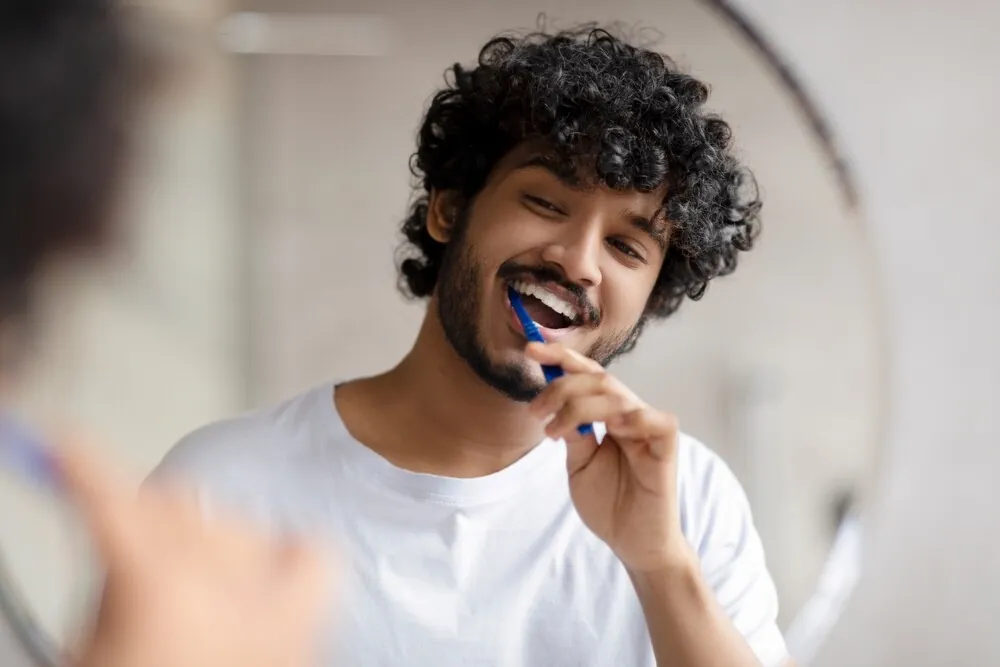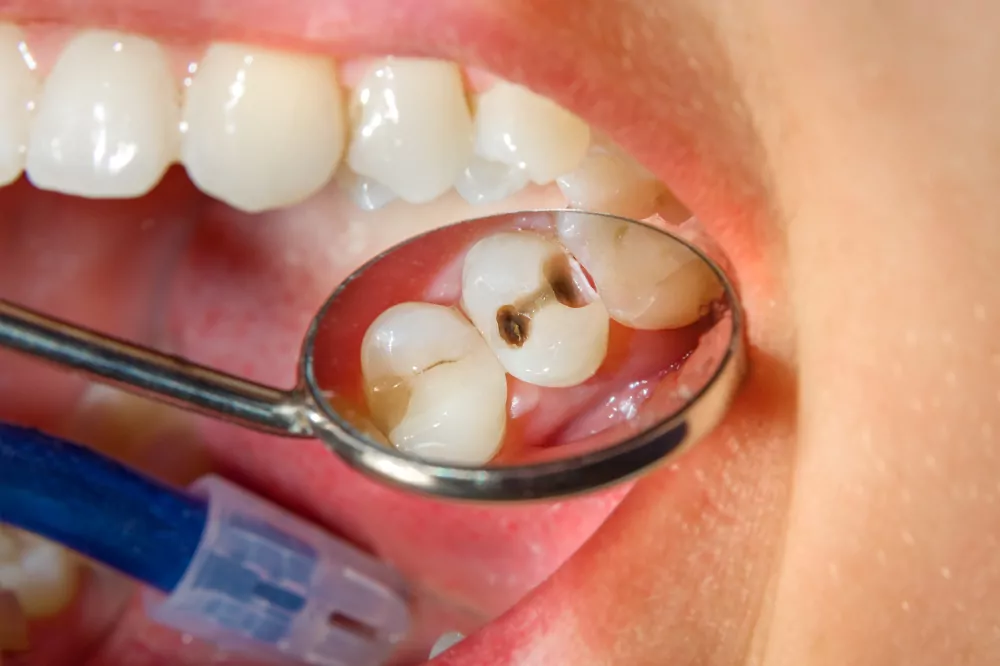
Pediatric Dentistry Age Limits
If you’re wondering about pediatric dentistry and what the age limits are for patients, then you’ve come to the right place.
Just as it is important that you take your children to a pediatric doctor for health checkups, it is equally as important to see a pediatric dentist for oral hygiene. But when it comes to pediatric age ranges, what are the limits? As it turns out, there’s no hard and fast rule.
At The Super Dentists, our pediatricians have the training and expertise needed to treat children’s developing teeth and potential issues like gum problems, cavities, tooth decay and crowding of the teeth. But we also cater to our super teens with our VIP teen lounge. We even have been known to see patients after their 18th birthday and into college or beyond.
So, why see a pediatric dentist? Dr. Kami Hoss has this to say on the matter: “They are not only very good at everything related to the technical dental needs of the child, but they are also great at understanding child behavior and working with children who have special needs.”
Pediatric practitioners are also great at educating parents using the latest information on best practices for daily mouth hygiene.
What is a Pediatric Dentist?
Pediatric dentistry, as defined by the American Academy of Pediatric Dentistry (AAPD), is: “an age-defined specialty that provides both primary and comprehensive preventive and therapeutic oral health care for infants and children through adolescence, including those with special health care needs.”
What’s the Difference Between Pediatric and Adult Dental Care / Services?
While general dentists focus solely on adult teeth, pediatric dentists usually specialize intreating children’s teeth. A pediatric dentist has two to three years of specialty training following dental school. The American Academy of Pediatric Dentistry (AAPD) explains that the two-year pediatric dentistry residency program starts after graduating from dental school and immerses dentists in scientific study and clinical experience:
“The trainee learns advanced diagnostic and surgical procedures, along with child psychology and clinical management, oral pathology, child-related pharmacology, radiology, child development, management of oral/facial trauma, care for patients with special needs, conscious sedation and general anesthesia,” says AAPD.
You can count on your pediatric dentist to be the primary and specialty oral care provider for your children from infancy through adolescence. Here are some key qualities of a pediatric dentist:
- Pediatric dentists complete four years of undergraduate college followed by four years of dental school and at least two more years of extra education focused on pediatric dentistry.
- They are trained to treat children in a way that makes them feel safe and comfortable
- They are trained to educate children about oral healthcare topics using developmentally appropriate language.
- Pediatric dentists include orthodontic assessment and intervention as part of their examination.
- Their offices are usually a fun place to be with kid-oriented toys and activities. Perhaps they are playing kid’s movies on the television in the lobby or offering video games.
- They offer special instruments and materials small enough for tiny mouths.
Should Kids Go to a Pediatric Dentist?
The answer is yes!
Kids should absolutely go to a pediatric dentist.
Think of pediatric dentists as specialists in their field. Children’s mouths and jaws are still developing, and pediatric dentists are trained to work with developing mouths. Pediatric dentists are trained in how to intervene in a child’s dental problems early to prevent more serious problems down the road.
There are certain dental issues seen exclusively in children. For example, natal teeth require special care, as do childhood cavities.
Pediatric dentists are trained to understand the anatomy of baby teeth and can perform procedures for primary teeth, like a baby root canal for example. When you bring your child to a pediatric dental, here are the specific treatments they can perform:
- Helping your child as the first teeth erupt.
- Dental sealant to help prevent cavities.
- Administering of resin-composite tooth-colored fillings.
- Effective sedation for kids to have a painless and worry-free procedure.
- Guiding children’s teeth into correct positions to help with orthodontics.
“We have flavored gloves and equipment that isn’t as intimidating as what you’ll find in a general dentist’s office,” said Dr. Hoss, co-owner of The Super Dentists. “And we can use lasers a lot of times instead of drills. These things make a big difference to kids.”
What Ages Does a Pediatric Dentist Treat?
Many people wonder what age to stop seeing a pediatric dentist. If you are wondering if there is a particular pediatric dentist age limit, there is not. The typical pediatric dentist treats patients ranging in age from around six months to a year old all the way up to late teens and early twenties, but they may also treat adults with special needs or even parents of child patients, in some cases.
Does it Matter if I Don’t Take My Child to a Pediatric Dentist?
A general dentist will be able to meet most of your child’s dental needs and sometimes families opt for a general dentist so the entire family goes to the same office. There are exceptions to the rule, though. If your child has special dental needs, it is wise to take them to a pediatric dentist where they are specialists in children’s oral hygiene.
Special needs children or children who have behavioral problems can benefit from the advanced training that pediatric dentists receive.
- Did You Know?: Pediatric dentists are not just trained in pediatric dentistry, they are also trained in behavior modification and use this training to help all kids improve their oral health.
Are Teens Too Old for Pediatric Dentists?
There is no legal or commonly accepted pediatric dentist age limit, so it is certainly appropriate for teenagers to stay at a pediatric office rather than switching to an adult dentist.
That’s especially true if they have a good relationship with their dentist and want to continue it into young adulthood. Teenagers can decide for themselves when they are ready to transition to a standard dental practice.
Approaching 18? Here’s the Case for Staying With a Pediatric Dentist Near You
While there is no pediatric dentist age range set in stone, there are advantages to teenagers staying put at their pediatric dentist office:
- For one, the pediatric dentist has knowledge of your teenager’s oral history and is in a better position to assist.
- If your pediatric dentist is set up to take your dental insurance, that’s a big benefit.
- If your pediatric dentist is conveniently located, friendly, and knowledgeable, why work harder to find someone else when there is no need?
If you are wondering when you should stop seeing a pediatric dentist, rest assured that The Super Dentists will always be here to help kids big and small as they transition into adulthood with all of their oral hygiene needs. We grow with you and your teeth!
For more information about pediatric dentistry, call The Super Dentists at 1-855-GO SUPER. The Super Dentist has been reinventing and transforming the dental experience for thousands of kids in San Diego since 1996.









